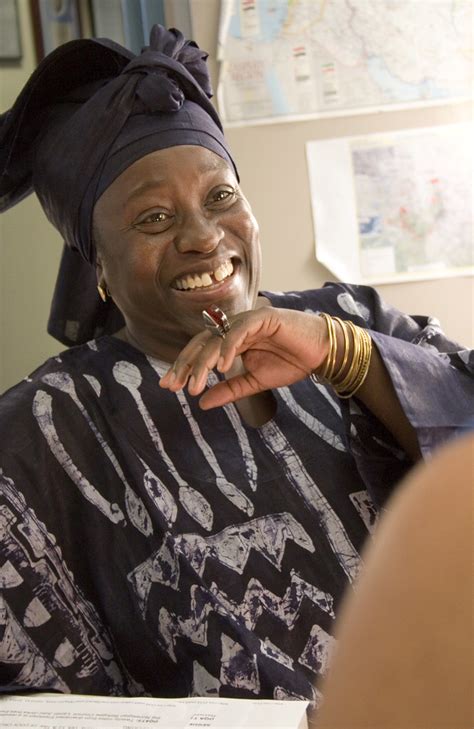A Quote by Ofeibea Quist-Arcton
Ebola has killed almost 12,000 people and at least 500 health workers. So it affected the entire population. And as you know, the World Health Organization was accused of not having declared an epidemic soon enough. And that's when we saw Ebola rampaging through Sierra Leone, Liberia and, to a lesser extent, Guinea.
Related Quotes
There was something that was killing the people in the interior, in the forest area, of the country, and nobody quite knew what it was. That lasted a good three months before it was officially declared that it was Ebola virus. So it started off in Guinea and spread quite slowly, but then spread over the border into Sierra Leone and Liberia.
Is Guinea prepared? And that's the question because of course these three countries had very, very weak health institutions. Many people had said that there was denial in Guinea, that many people in Guinea either said that Ebola did not exist or were hostile to any sort of Ebola health and safety awareness - how to deal with it.
How do we explain for example the Ebola epidemic in Liberia, Sierra Leone, and Guinea Conakry? Those very powers that swindled and occupied them, in the face of the serious situation of social emergency, have not even had the capacity to send doctors there. In some cases they have sent in militaries instead because that is what they are compelled to do. They have had to send military to do it because they do not even have any doctors with the willingness to risk their lives in order to help those people that are precisely paying for the consequences of years of colonization.
I think Ebola is a great example of where the world really needs to come together. The three countries where this outbreak took place have had a lot of civil war, very weak health systems. And so, it did take a while for people to understand ....that eventually what we saw was a very unique Ebola epidemic. I think it is quite impressive what's being pulled together, and I think we will be able to get this under control.
I was born and raised in Liberia in West Africa. My mother is Sierra Leonean, and my father's Liberian. I grew up at a time when there was a lot of civil unrest in both countries, so when something would happen in Liberia, we'd go to Sierra Leone, and when something would happen in Sierra Leone, we'd go back to Liberia. We moved to save our lives.
We do not have an outbreak of Ebola in the United States. Nowhere. We do have two health care workers who contracted the disease from a dying man. They are isolated. There is no information to suggest that the virus has spread to anyone in the general population in America. Not one person in the general population in the United States.



























